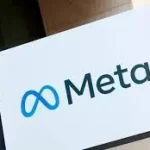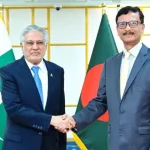Hassan Rouhani is not someone who rose from the grass root level to the helm of affairs. He is someone who has been indulged in matters of National Security as a member of the National Security Council, and has been the head of the Center for Strategic Research. Being a top negotiator in the previous rounds of negotiations and well-versed in the field of law, one cannot underestimate this Iranian president; Hassan Rouhani may not have the power of rhetoric, but he certainly possesses the power of persuasion. He may not have a flamboyant expression, but he is someone who can never be underestimated for he seems to be a man who will never miss a moment.
So what is really happening that we don’t see standing in the obvious? What are the possibilities that may develop after or during the six months ‘relaxation’ in the Iranian nuclear progress? President Obama made a commitment in Prague, the Security Council has shown a proactive attitude with quite a lot of noticeable blunders, the Syrian chemical attacks raised eyebrows on the Chemical Weapons Convention and the IAEA showed compromised practicality ever since it became operational. The promise of global zero still roams free in Utopia while nations trick the system, and the credibility of state actors remains forever controversial. Israel consistently marks the bomb Netanyahu displayed on the floor of the UN, all to no effect; and Iran remains docile, but is Iran treacherous?
North Korea is a fascinating state – no oil, no geo-strategy, and absolutely no diplomacy except the gunboat option. However, in a country ruled by successive dictatorships, one can imagine this behavior. The game of ‘arming and disarming’ lingered on under the shadow of constant threats, blockades and sanctions, but ended up with North Korea’s distasteful welcome to the ‘non-nuclear weapon states outside the NPT possessing nuclear arsenal’. On the other hand, we have Israel – surrounded by adversaries and maintaining a ‘Sampson Option’ of absolute destruction in the wake of any exponential threat. A state that has it all; from Germany’s offer to provide nuclear submarines to their own BMDS under the Iron Dome, but still falling handsomely in the blind spot of global nuclear watchdogs. Just as we are about to conclude, we come across Iran, a nation that confuses all the others and gets the best of them by a simple analogy – nuclear weapons are forbidden religiously, will not be a part of Iran’s defenses, rights to enrich according to NPT, the right to maintain a deterrence against adversaries and the hawk-dove paradigms from the corridors of presidency.
As Mr. Hassan Rouhani takes charge of the presidency in Iran, the mood of all the global nuclear negotiators is taken to a whole new level. Their demands and conditions that were previously sought as absurd and blatantly impractical now seem as the best option available at the table. Mr. Rouhani suddenly takes over the entire situation and assures the world of complete compliance, provided that the financial encumbrance is dealt with. So we see what we saw a few days ago – agreement of the long-controversial Iranian nuclear question. Mr. Rouhani starts passing statements that assert a covert meaning; the ‘sealing of Iran’s nuclear rights’ and the ‘International community should refrain from imposing restrictions when Iran is exercising its right’. Invoking the article IV of the NPT, the Iranian president assumes that the Geneva talks have in fact legitimized Iran’s right to enrichment.
Where previously, this was the only justification offered by both the sides, consequently leading to the dispute in the first place, the ‘success’ may not be what is being communicated. Iran believes that this gives credence to the article IV of the NPT in Iran’s favor, and the US believes that this arrangement has ceased all military diversion from Iran’s side. Leaving the articles concerning negotiations in good faith aside, the credibility of both the parties under question has been much debated over the years, and when it comes to the nuclearization of a state, one cannot be too careful. The NPT is a compendium of articles that are too open and vague in nature, and flexible enough to be easily manipulated in one’s favor. If Iran feels like diverting in the prospective future, the success of these talks serves as a viable and potent instance of global legitimization as is evident from Mr. Rouhani’s statements concerning the settlement. The bargaining chip has been, and will be, withdrawal from the NPT, and now that Iran has a new, more diplomatic president, the results may be too unorthodox.
What can be the outcome of all this confusion is too soon to tell, as the agreement has only begun and is still in the theory phase? However, the clandestine reality is far from an assumption. If Iran uses this agreement to its own advantage and declares it as a precedent to their inherent right to continue enriching nuclear materials as per the NPT, the absence of any proper yardstick for measuring the level of enrichment attained and the lack of credibility in the neutralization of fissile material already enriched beyond 5% will revive the old issues, and this time; a time when global politics is already showing strains on tolerance and the pacification of disputes, there may come a reaction unlike any before this issue, or the world may yet witness another North Korea, only this time in the Persian Gulf. What intrigues me personally will be the development after the end of the six month deadline, and even more so, Saudi Arabia’s response in the coming weeks, as the Saudi monarchy was not too confident when this deal was struck.








